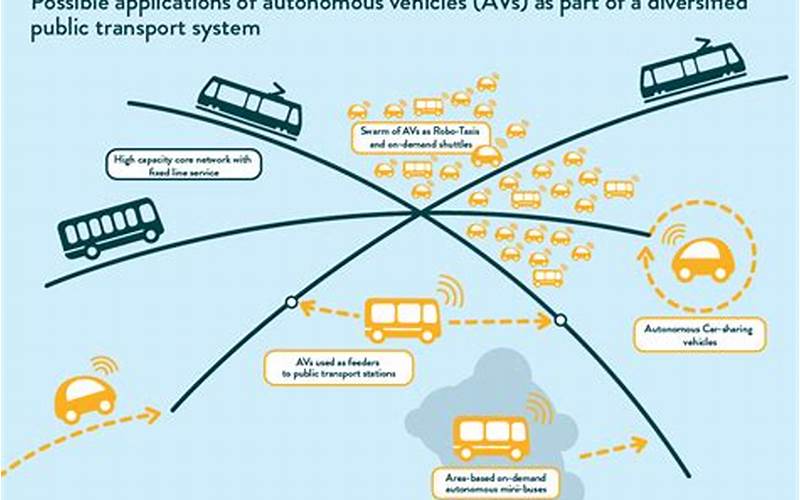With the rapid advancements in technology, the automotive industry is on the brink of a revolution. Autonomous cars, also known as self-driving cars, are set to become the next big thing in automotive innovation. These vehicles have the potential to transform the way we travel, making our roads safer, reducing traffic congestion, and improving overall transportation efficiency. In this article, we will delve into the concept of autonomous cars, explore their benefits, examine the challenges they face, and highlight some notable case studies.
Contents
Understanding Autonomous Cars

Autonomous cars are vehicles that can operate without human intervention. They utilize a combination of sensors, cameras, radar, and artificial intelligence algorithms to perceive their surroundings and make decisions based on the data they receive. These cars can navigate, accelerate, brake, and even park themselves, all without human input.
The Levels of Autonomous Driving
Autonomous driving technology is categorized into different levels, each representing a different level of automation:
- Level 0: No Automation: The driver is fully in control of the vehicle at all times.
- Level 1: Driver Assistance: The vehicle can assist the driver with specific functions, such as adaptive cruise control or lane-keeping assist.
- Level 2: Partial Automation: The vehicle can perform multiple functions simultaneously, such as steering and acceleration, but the driver must remain engaged and ready to take control at any time.
- Level 3: Conditional Automation: The vehicle can take full control under certain conditions, but the driver must be ready to intervene when prompted.
- Level 4: High Automation: The vehicle can perform all driving tasks under specific conditions or within a specified geographic area, with the driver only needed for emergencies.
- Level 5: Full Automation: The vehicle can perform all driving tasks under all conditions, without any human intervention required.
The Benefits of Autonomous Cars

Autonomous cars offer numerous benefits that have the potential to revolutionize the way we travel:
Improved Safety
One of the most significant benefits of autonomous cars is improved safety. According to the World Health Organization, over 1.35 million people die each year due to road traffic accidents. Many accidents are caused by human errors, such as distracted driving or impaired judgment. By eliminating human error, autonomous cars have the potential to save countless lives. These vehicles can constantly monitor their surroundings, react faster than humans, and make calculated decisions based on real-time data. With advanced sensors and algorithms, autonomous cars can detect potential hazards and take preventive measures to avoid accidents.
Reduced Traffic Congestion
Traffic congestion is a major issue in urban areas, leading to wasted time, increased fuel consumption, and environmental pollution. Autonomous cars can play a significant role in reducing traffic congestion. These vehicles can communicate with each other and with traffic infrastructure, such as traffic lights, to optimize traffic flow. By sharing information and making real-time adjustments to their speed and routes, autonomous cars can reduce unnecessary stops and minimize traffic jams. This can result in shorter travel times, improved fuel efficiency, and reduced carbon emissions.
Increased Accessibility

Autonomous cars have the potential to provide transportation solutions for people who are unable to drive, such as the elderly or individuals with disabilities. These vehicles can offer increased mobility and independence to those who may otherwise rely on others or public transportation. With autonomous cars, individuals with mobility limitations can regain their freedom and have more control over their daily activities. Additionally, autonomous ride-hailing services can cater to the specific needs of these individuals, ensuring they have access to safe and reliable transportation.
Environmental Benefits
Concerns about climate change and environmental sustainability have become increasingly important in recent years. Autonomous cars can contribute to environmental conservation by driving more efficiently and reducing emissions. These vehicles can be programmed to optimize fuel consumption, taking into account factors such as traffic conditions and terrain. According to a study by the University of Michigan, self-driving cars have the potential to reduce fuel consumption by up to 22%. Additionally, autonomous cars can facilitate the adoption of electric vehicles, as they can be designed to autonomously charge themselves and manage battery usage effectively.
The Challenges of Autonomous Cars

While the potential benefits of autonomous cars are significant, there are several challenges that need to be overcome:
Technological Limitations
The development and implementation of autonomous cars require advanced technology and sophisticated algorithms. Ensuring the reliability and safety of these systems is a complex task that requires extensive testing and validation. Autonomous vehicles need to be able to accurately perceive their surroundings, make split-second decisions, and adapt to unpredictable situations. Additionally, these vehicles need to be resistant to cyber threats and hacking attempts, as they rely on complex interconnected systems.
Legal and Regulatory Framework
The introduction of autonomous cars raises numerous legal and regulatory questions. Issues such as liability in the event of an accident and the need for new traffic laws and regulations need to be addressed before these vehicles can be widely adopted. Governments and regulatory bodies around the world are working to establish guidelines and standards for autonomous driving. However, developing a comprehensive legal framework that accommodates the complexities of autonomous cars remains a challenge.
Public Acceptance
Building public acceptance and trust in autonomous cars is a significant hurdle. Many people are skeptical about the safety and reliability of these vehicles. High-profile accidents involving autonomous cars during testing phases have raised concerns and contributed to public apprehension. It is crucial to educate the public about the potential benefits of autonomous cars and highlight the safety measures and technologies in place to mitigate risks. Demonstrating the advantages of autonomous cars through successful case studies and rigorous testing can help build public confidence in this emerging technology.
Case Studies: Autonomous Cars in Action

While autonomous cars are still in the early stages of development, several companies have already made significant progress:
Waymo
Waymo, a subsidiary of Alphabet Inc. (Google’s parent company), has been at the forefront of autonomous driving technology. They have been testing autonomous vehicles since 2009 and have accumulated millions of miles on public roads. Waymo’s self-driving cars have even started offering a commercial ride-hailing service in select areas, allowing users to experience autonomous transportation firsthand.
Tesla
Tesla, the electric car manufacturer, has been actively developing autonomous driving technology. Their vehicles come equipped with Autopilot, a feature that enables limited self-driving capabilities. Tesla’s fleet of vehicles has collected a vast amount of data, which helps improve their autonomous driving algorithms through machine learning. Tesla owners can participate in the company’s “Full Self-Driving” beta program, providing valuable real-world data for further refinement.
Uber
Uber, the ride-hailing giant, has been investing heavily in autonomous vehicle technology. They have been testing self-driving cars in several cities and have partnered with Volvo to develop autonomous vehicles specifically designed for ride-hailing services. Uber envisions a future where their fleet of vehicles will be fully autonomous, providing efficient and cost-effective transportation to their customers.
Summary
Autonomous cars represent a significant milestone in automotive innovation, with the potential to revolutionize transportation. These vehicles offer improved safety, reduced traffic congestion, increased accessibility, and environmental benefits. However, challenges such as technological limitations, legal and regulatory frameworks, and public acceptance need to be overcome for widespread adoption. Companies like Waymo, Tesla, and Uber are already making significant progress in the development and testing of autonomous cars. As technology continues to advance and these challenges are addressed, autonomous cars will become an integral part of our transportation ecosystem, shaping the future of mobility.







